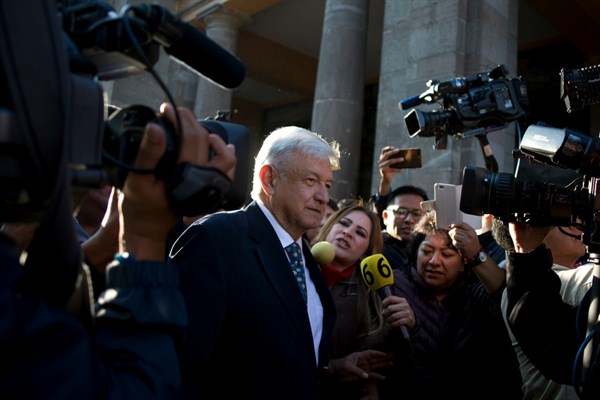MEXICO CITY—Last week, the spokesperson for Mexico’s president-elect, Andres Manuel Lopez Obrador, announced the cancellation of a lavish new airport in Mexico City, a $13.3 billion project that was already under construction. The decision came after an informal four-day referendum in which 70 percent of voters backed scrapping the project. “The decision taken by the citizens is democratic, rational and efficient,” Lopez Obrador said. “The people decided.” Yet it hardly reflected the full Mexican electorate, as less than 2 percent of Mexico’s eligible voters participated in the ballot, which Lopez Obrador’s own party and its allies had organized.
The announcement sent Mexican stocks into a free fall, while the Mexican peso lost almost 4 percent of its value against the U.S. dollar. The reaction of the markets was attributed less to the cancellation of the new airport, which would have stood out as an oasis in a city of crumbling infrastructure, and more to the process that the incoming presidential administration used to legitimize its decision.
AMLO, as Lopez Obrador is widely known in Mexico, has never been the darling of markets. His populist rhetoric and statist tendencies have raised suspicions from investors and the international business community throughout his long political career, dating back to the 1980s. However, during this year’s presidential campaign, AMLO softened his stance toward the private sector, appeasing international investors. This led to a brief honeymoon with the markets, which extended after his landslide election victory in July. All this changed following the public consultation on the future of the new airport.

